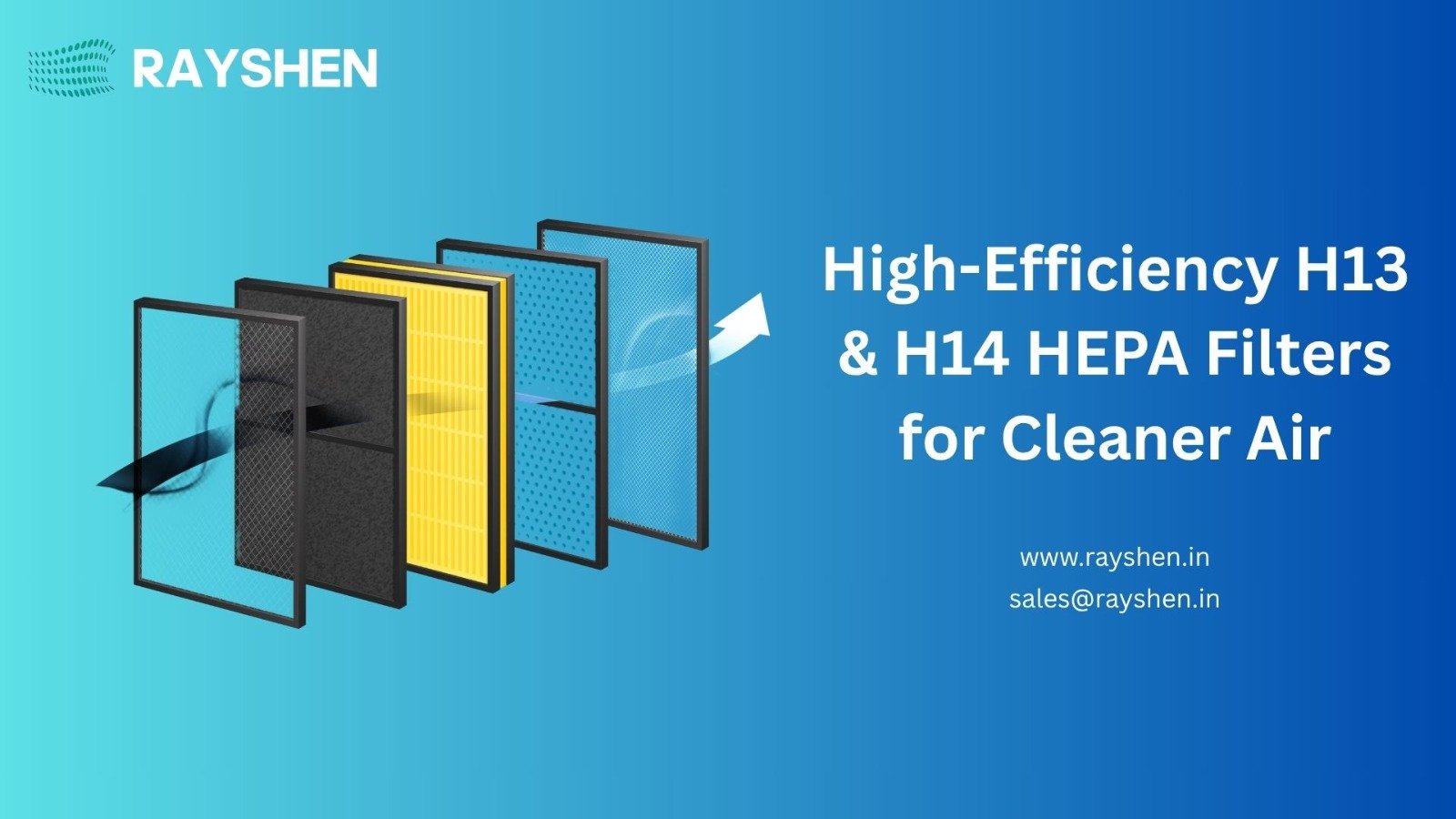Cleanrooms and controlled environments demand strict air quality standards. Whether it’s pharmaceuticals, biotechnology, healthcare, or electronics, even the tiniest airborne particles can compromise product quality or pose health risks. Among the different grades of HEPA filters, H14 stands out as the gold standard for maximum efficiency and reliability.
At Rayshen, we provide high-performance H14 filters designed to deliver exceptional contamination control. Let’s take a closer look at how H14 filters compare to other grades and why they are considered superior for industries where clean air is critical.
What are HEPA Filters?
HEPA (High-Efficiency Particulate Air) filters are specialized air filters designed to capture extremely small particles, including dust, allergens, bacteria, and microorganisms. They are categorized into different grades based on their filtration efficiency.
HEPA filter grades typically range from H10 to H14 under the EN 1822 standard:
- H10 – H12: Medium efficiency, suitable for general use.
- H13: High efficiency, capable of capturing 99.95% of particles.
- H14: Ultra-high efficiency, capable of capturing 99.995% of particles as small as 0.3 microns.
This means that while all HEPA filters are highly effective, H14 is the most advanced grade available, making it essential for environments where absolute cleanliness is non-negotiable.
Understanding H14 HEPA Filters
An H14 filter can trap 99.995% of airborne particles, including viruses, bacteria, spores, and fine dust. They are specifically engineered for cleanrooms, laboratories, hospitals, and semiconductor facilities where even the smallest contamination can cause critical issues.
At Rayshen, our H14 HEPA filters are built with precision to deliver maximum efficiency, ensuring that your cleanroom or controlled space meets the highest industry standards. Explore more here: Rayshen H14 HEPA Filters.
H14 vs. Other HEPA Grades
1. Filtration Efficiency
- H13 Filters: Capture 99.95% of particles.
- H14 Filters: Capture 99.995% of particles.
While the numerical difference may look small, in practice, this higher efficiency means significantly fewer particles escape into the environment, making H14 filters far superior for critical applications.
2. Application Suitability
- H13 Filters: Suitable for hospitals, offices, and less critical cleanrooms.
- H14 Filters: Essential for pharmaceutical production, semiconductor manufacturing, and biotechnology research where sterility and precision are mandatory.
3. Contamination Control
H14 filters are specifically designed to remove ultra-fine particles, including airborne microorganisms. This makes them indispensable in sterile manufacturing and healthcare settings.
4. Regulatory Compliance
Many international standards, including ISO classifications for cleanrooms and GMP (Good Manufacturing Practice), recommend or require H14 filters for the highest-grade cleanroom environments.
Why H14 Filters are Superior
1. Maximum Protection Against Airborne Threats
The ability to capture 99.995% of particles ensures that H14 filters provide unmatched protection against contaminants, safeguarding sensitive processes and protecting workers in high-risk environments.
2. Enhanced Cleanroom Performance
By preventing even microscopic contaminants from entering, H14 filters help cleanrooms consistently maintain required ISO standards. This improves reliability and reduces risks of contamination-related failures.
3. Critical for Sensitive Industries
In industries like pharmaceuticals and semiconductors, even the slightest contamination can cause costly losses. H14 filters eliminate this risk by ensuring an ultra-clean working environment.
4. Long-Term Value
Although H14 filters may require a higher initial investment than lower-grade HEPA filters, their superior performance reduces risks, enhances product quality, and ensures compliance with regulations—offering long-term value.
Applications of H14 HEPA Filters
H14 filters are widely used in industries and facilities where contamination control is mission-critical:
- Pharmaceutical & Biotech: To maintain sterile environments during drug development and manufacturing.
- Semiconductors & Electronics: To prevent micro-defects caused by dust or fine particles.
- Hospitals & Healthcare: To reduce the spread of infections in operating theaters and isolation wards.
- Food & Beverage: To ensure hygiene and safety in production and packaging processes.
- Laboratories & Research: To protect research integrity and maintain precise experimental conditions.
Why Choose Rayshen H14 Filters?
At Rayshen, we specialize in manufacturing H14 filters that meet the strictest global standards. Our filters are:
- Made with precision-tested media for ultra-fine particle capture.
- Durable and long-lasting, ensuring reliable performance.
- Compatible with cleanroom and HVAC systems across industries.
- Designed to meet ISO and GMP compliance for sensitive environments.
With Rayshen H14 filters, you can be confident that your cleanroom or facility is equipped with the most advanced air filtration system available. Explore more here: Rayshen H14 HEPA Filters.
Maintenance Tips for H14 Filters
To maximize the efficiency and lifespan of your H14 filters:
- Replace filters as recommended by the manufacturer.
- Regularly monitor pressure drop across the filter to detect clogging.
- Schedule routine inspections and testing for compliance.
- Ensure proper installation and sealing to prevent air leakage.
These practices will keep your H14 filters functioning at peak performance and protect your critical operations.
Conclusion
When it comes to cleanroom air quality, not all HEPA filters are created equal. While H13 filters are effective, H14 filters stand out as the superior choice due to their unmatched efficiency, reliability, and compliance with global standards.
At Rayshen, we are dedicated to delivering H14 filters that provide maximum protection against airborne contaminants, ensuring your cleanroom maintains the highest levels of safety and performance.
